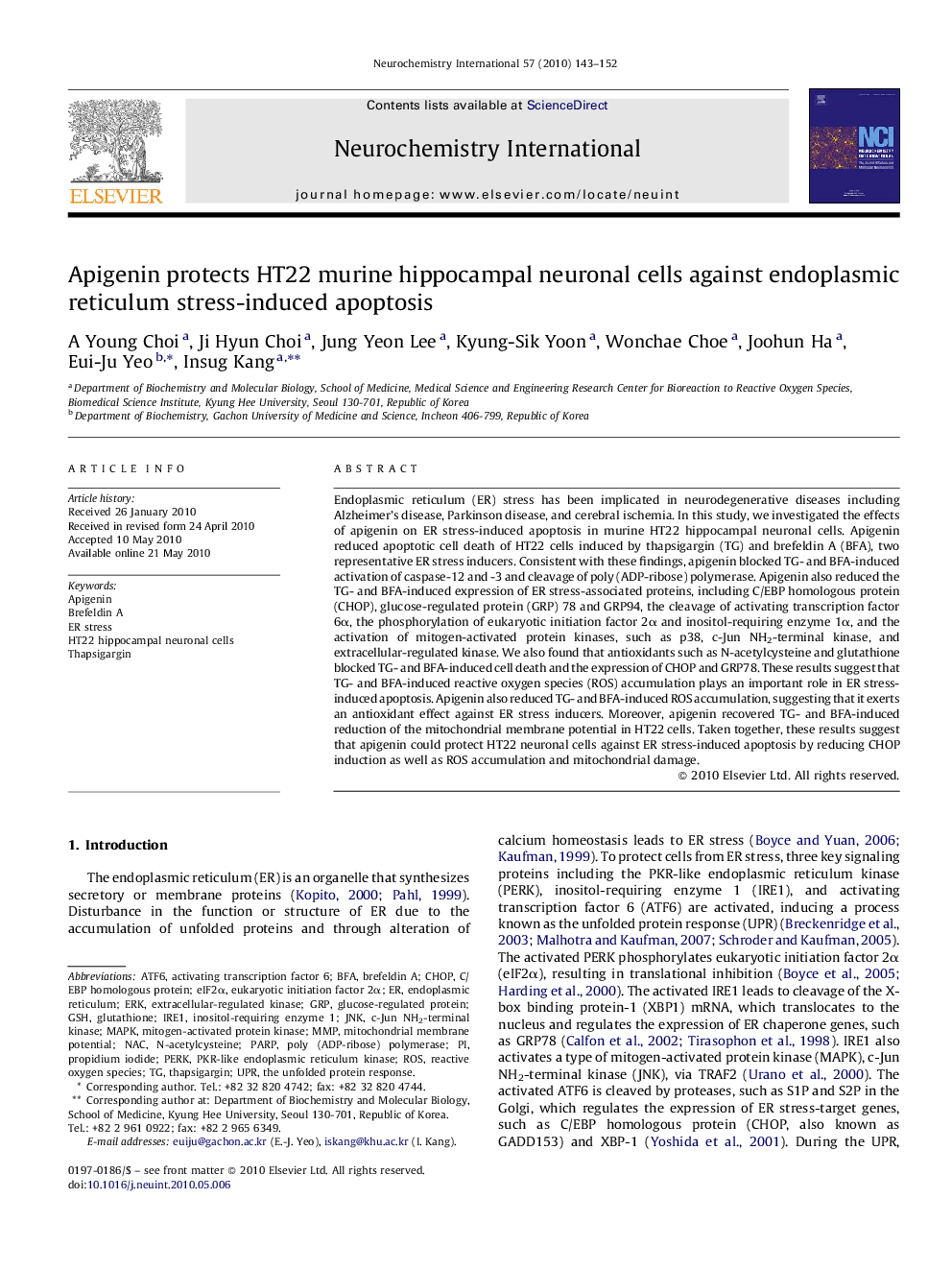| Article ID | Journal | Published Year | Pages | File Type |
|---|---|---|---|---|
| 2201290 | Neurochemistry International | 2010 | 10 Pages |
Endoplasmic reticulum (ER) stress has been implicated in neurodegenerative diseases including Alzheimer's disease, Parkinson disease, and cerebral ischemia. In this study, we investigated the effects of apigenin on ER stress-induced apoptosis in murine HT22 hippocampal neuronal cells. Apigenin reduced apoptotic cell death of HT22 cells induced by thapsigargin (TG) and brefeldin A (BFA), two representative ER stress inducers. Consistent with these findings, apigenin blocked TG- and BFA-induced activation of caspase-12 and -3 and cleavage of poly (ADP-ribose) polymerase. Apigenin also reduced the TG- and BFA-induced expression of ER stress-associated proteins, including C/EBP homologous protein (CHOP), glucose-regulated protein (GRP) 78 and GRP94, the cleavage of activating transcription factor 6α, the phosphorylation of eukaryotic initiation factor 2α and inositol-requiring enzyme 1α, and the activation of mitogen-activated protein kinases, such as p38, c-Jun NH2-terminal kinase, and extracellular-regulated kinase. We also found that antioxidants such as N-acetylcysteine and glutathione blocked TG- and BFA-induced cell death and the expression of CHOP and GRP78. These results suggest that TG- and BFA-induced reactive oxygen species (ROS) accumulation plays an important role in ER stress-induced apoptosis. Apigenin also reduced TG- and BFA-induced ROS accumulation, suggesting that it exerts an antioxidant effect against ER stress inducers. Moreover, apigenin recovered TG- and BFA-induced reduction of the mitochondrial membrane potential in HT22 cells. Taken together, these results suggest that apigenin could protect HT22 neuronal cells against ER stress-induced apoptosis by reducing CHOP induction as well as ROS accumulation and mitochondrial damage.
